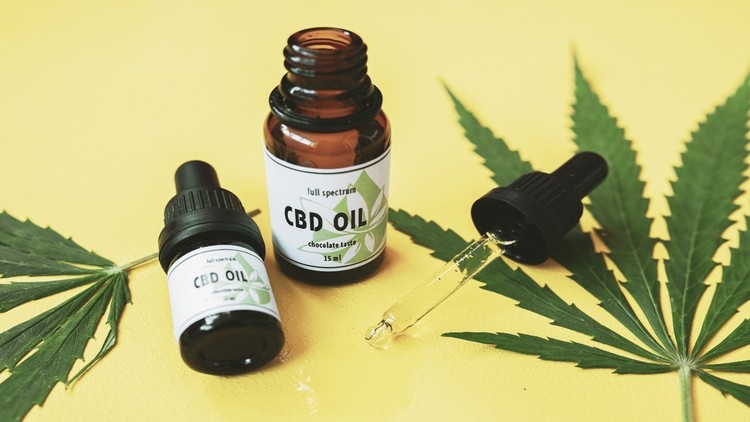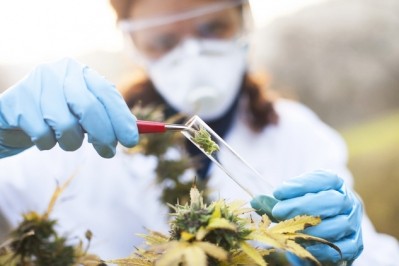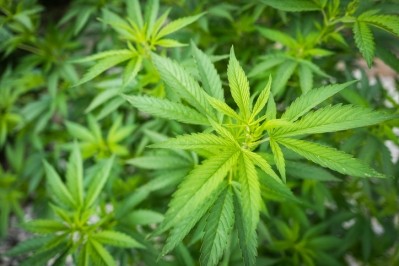Lawyer says guidelines for sale of CBD products are "nonsensical" and "discriminatory"

Following the publication of a much-anticipated list of brands allowed to sell CBD products, a number have been pulled from shelves and one backed by David Beckham is currently considering its position after seeking further clarification from the FSA.
The FSA's list of products was the first in the world to regulate the market for orally consumed safe legal cannabis extracts.
Cellular Goods, linked to David Beckham who holds a 5% stake worth €787,122 (£656,000) via his investment business, DB Ventures, originally argued its range could be sold and should have been on the list because it was produced by Chanelle McCoy Health, an established brand which is on the list.
However, the FSA says products not specifically named on the public list should be removed from sale.
CBD products are ‘novel’ and therefore need to be assessed by the FSA for safety before being placed on the market in the UK. They must be authorised to ensure they have been through an independent safety assessment.
The list of CBD products linked to novel food applications contains CBD food products which meet the following criteria; they were on the market at the time of the FSA's announcement on CBD (13 February 2020), the FSA and that they validated the application or agreed that it is sufficiently progressing towards validation.
However, a managing partner at an EU law firm says the list is “discriminatory and nonsensical”.
Dr Mark Tallon of Legal Foods believes the FSA should implement complete removal of all CBD products to ensure the novel foods regulation is implemented correctly.
The alternative, he says, is to permit all ingredients that are on the market with equivalent or better safety data than CBD to experience the same level of enforcement.
He said: “In our view the list is discriminatory and nonsensical. You can have a company that may have invested more than €360,000 (£300,000) on a novel foods dossier but be on the market the day after the FSA’s 13 February deadline not being allowed a sell through.
“On the other hand, you could have a firm with no data only the promise of generating some but because they were on the market (illegally as with all other CBD products) before that date but permitted to remain on the market. If industry wants to challenge the current public list and such unfairness, they are on borrowed time with only three months from the publication of the list to bring a judicial review.”
The FSA is still accepting applications to be added to its list, while warning that brands applying or reapplying after 31 March 2021 should not put their products on the market until they are authorised.
It said: “White labels were not permitted after 13 February, 2020, if they wanted to make a new brand. Business-to-business sales are permitted if the brand is not changed. Labelled products sold before this date cannot be rebranded after the cut-off date until the product is authorised.
“One of the criteria for having products included on the public list is that applicants have to provide evidence that the specific products were on the market at the time of our announcement.”
“We expect companies which have not applied for authorisation or those rejected from the process to withdraw their products from the market voluntarily. If this does not happen, local authorities can use the list to inform their enforcement decisions,” the FSA says.
Even being on the list does not constitute approval from the FSA. Instead, it means the FSA tolerates those products remaining on sale pending decisions at a later stage.
An FSA spokesperson added: “Retailers can use the list to help them make informed judgments about what they stock.
“We have advised local authorities to take a proportionate approach to enforcement against CBD products and we understand it may take time for the market to reduce and for certain products to be removed from circulation.”
Emily Miles, Chief Executive of the FSA, said: “The CBD market is growing rapidly. The FSA has been working to move the CBD industry into compliance. We have taken the next step in our pragmatic approach to making sure CBD products are safe and what they say they are.
“Being on the list means the application is credible and the FSA has, or is shortly expecting to receive significant scientific evidence from the applicant with which to judge safely. I want to emphasise the FSA is not endorsing products on the public list, and inclusion on the list is no guarantee that they will be authorised as they have not yet been fully assessed for safety."
Association for the Cannabinoid Industry's (ACI) Senior Counsel, Steve Moore, said that anomolies were inevitable but that the FSA is right to issue guidelines.
He said: “The problem now is products that did not meet the criteria are being traded. They should be pulling their products off the market.
"The decision to implement this policy - effectively using a pre-marketing authorisation device retrospectively - was always going to create anomalies but it was pragmatic and largely welcomed by an industry crying out for regulation and it's one that has been vindicated thus far. The UK consumer cannabinoid sector now has greater regulatory clarity than any other European country.
"It is a bit late in the day to be revisiting the central tenets of the policy which has generated long overdue toxicology studies and wider investment in products safety."









